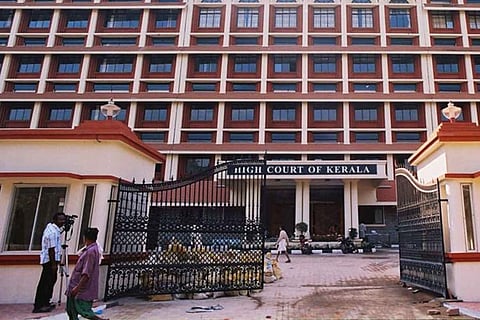

Hearing a plea regarding the “propriety” of using halal-certified jaggery at the Sabarimala temple, the Kerala High Court on Wednesday, November 24, questioned the petitioner on his understanding of the concept of halal permissible items. The High Court bench told the petitioner SJR Kumar — who has opposed procuring of halal-certified jaggery for the preparation of prasadam at the temple — that he should have gone deep into the concept of halal before challenging the use of halal products. “The concept of halal only says that certain things are prohibited; all other things are halal. This certification only says that those prohibited materials are not included in a particular product,” the court said, according to LiveLaw.
The petitioner Kumar, who represents an organisation called Sabarimala Karma Samithi, and is a former President of Vishva Hindu Parishad (VHP) Kerala, had filed a plea in the High Court seeking the opinion of the chief priest of the Sabarimala temple with regard to propriety of using halal-certified jaggery to prepare prasadam like 'aravana' and 'appam', and the steps for “remedying the situation.” His plea claimed that religious scholars in Islam have said that saliva is a necessary ingredient for halal certification.
Referring to the recent controversy in the state around the practice of spitting into food, the petitioner insinuated that food materials are certified halal after being spit upon. Based on these arguments, a division bench of Justices Anil K Narendran and PG Ajithkumar advised Kumar to understand the concept of halal properly. Items other than food can also be halal-certified, where they should not contain any ingredients that are prohibited in Islam or come in contact with pork and alcohol.
However, the court reportedly noted the petitioner’s understanding of halal certification to be the same as the process of slaughtering animals in compliance with Islamic dietary rules. However, the bench observed that a more detailed hearing would be necessary before making any judgements in the matter. Based on these arguments, a division bench of Justices Anil K Narendran and PG Ajithkumar advised Kumar to understand the concept of halal properly.
On November 18, the Travancore Devaswom Board (TDB), which manages the Lord Ayyappa temple at Sabarimala, told the court that the jaggery received by it had 'halal' mentioned on the packaging as they are also exported to Arab countries by the company supplying to them.
The TDB had also told the court that the 'appam' and 'aravana' are being prepared using fresh supplies of jaggery received earlier this year and the older stock, which was tested in September and found unsuitable for human consumption, has been auctioned off to Thrissur-based Southern Agro Tech India Pvt Ltd for making cattle feed. However, the petitioner filed an affidavit which submitted that the older jaggery was also being used for human consumption. The court then asked the petitioner to clarify the same with the firms to which the jaggery had been auctioned off, as well as the contractor who currently supplies jaggery to the Sabarimala temple.